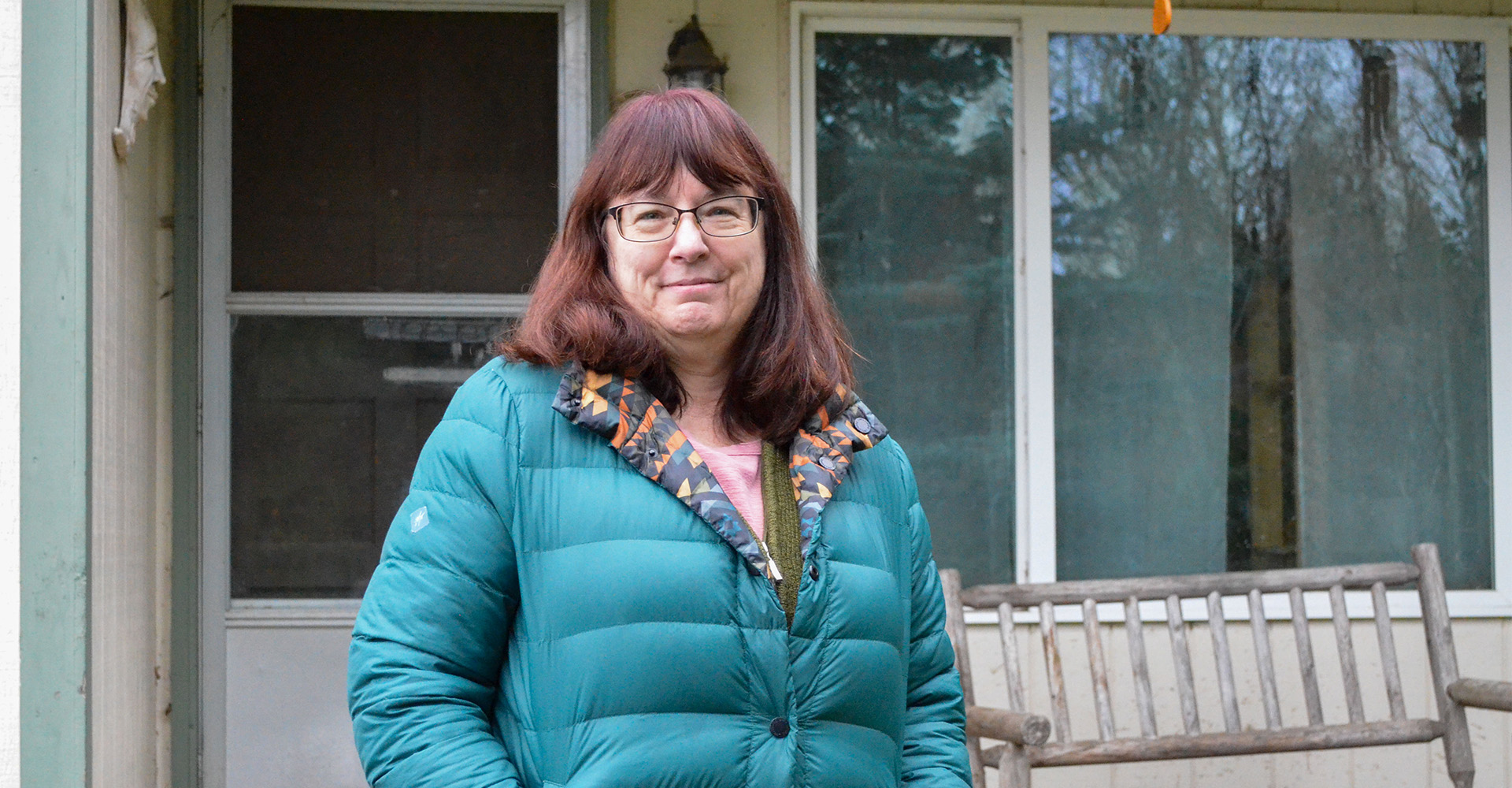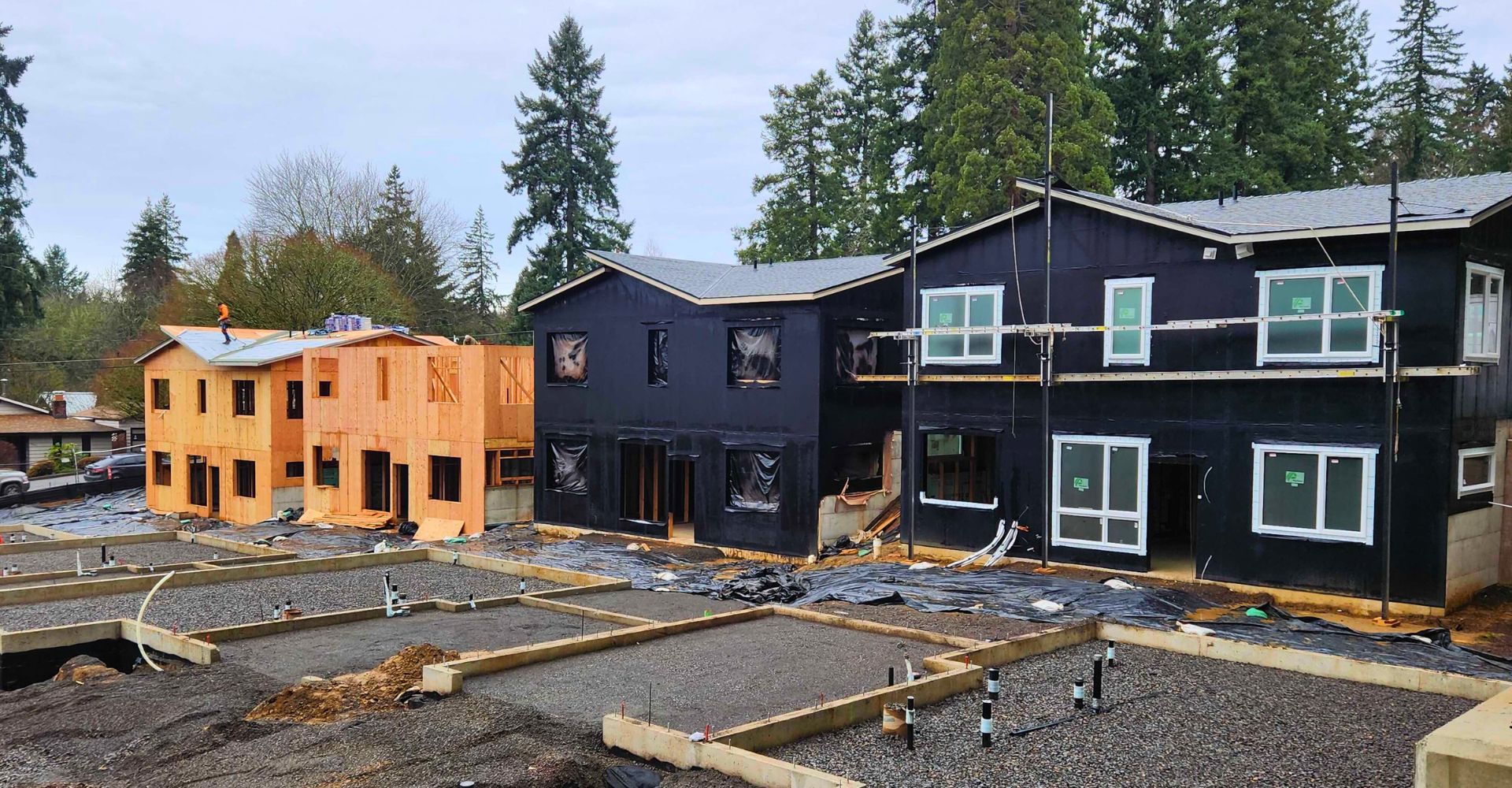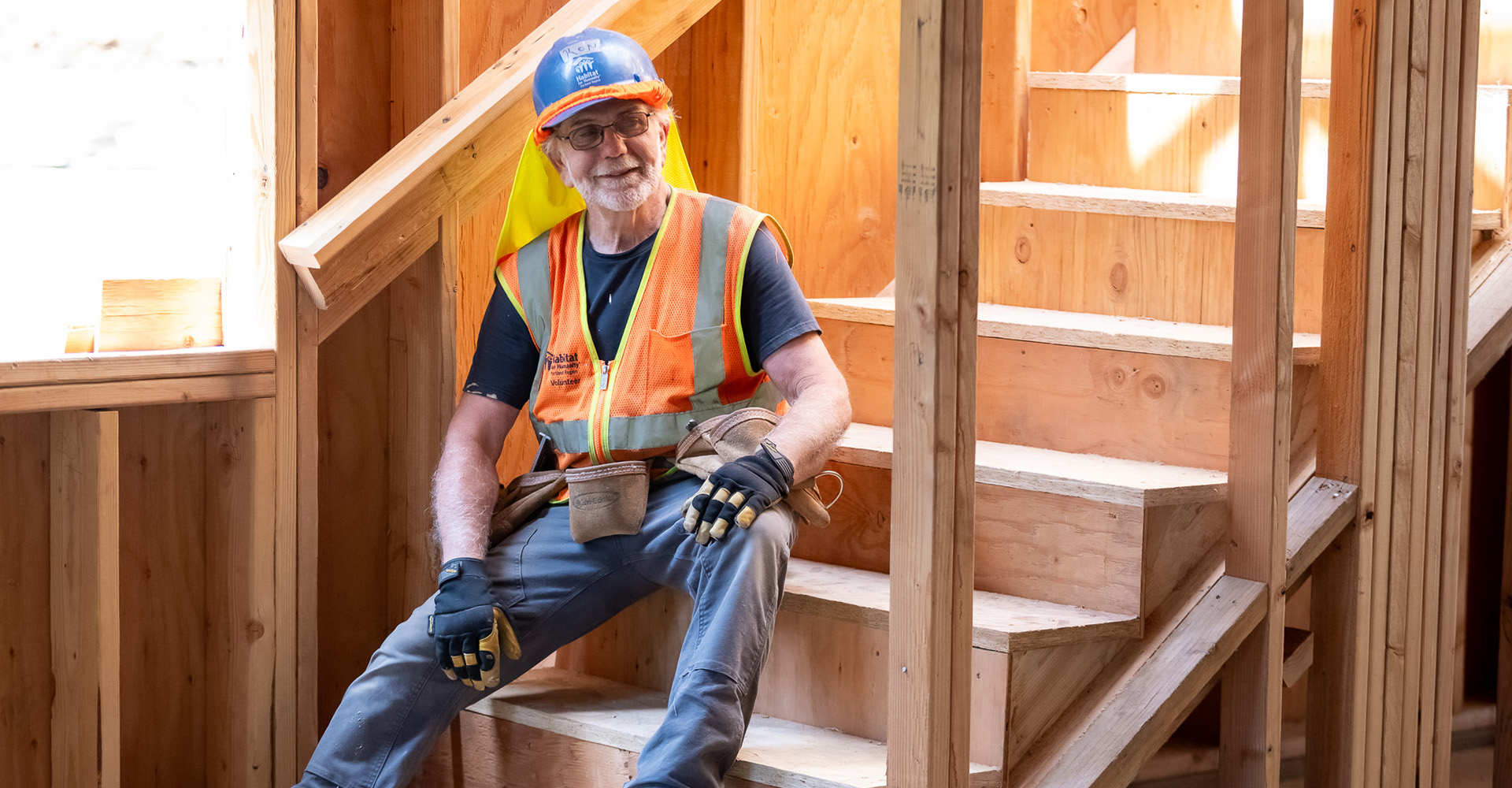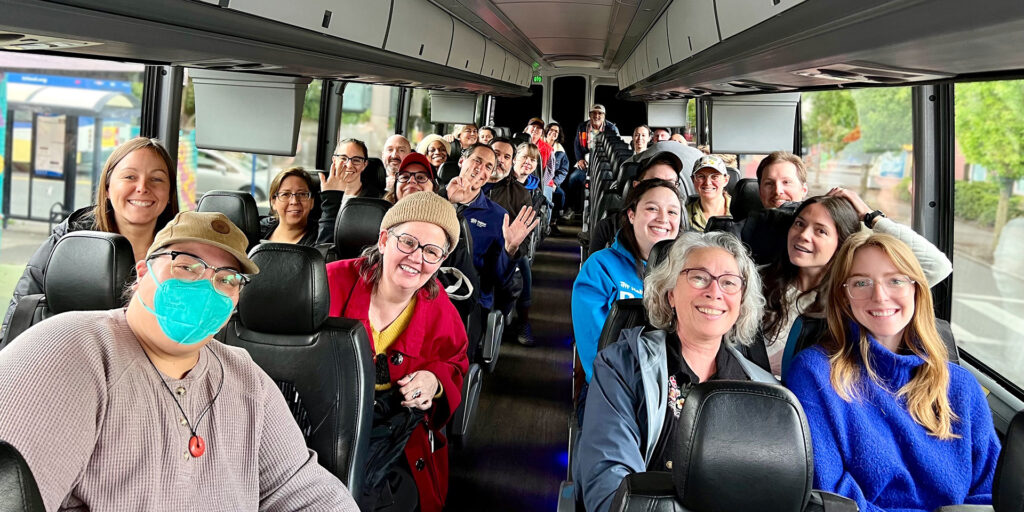
On a chilly, gray morning, around 30 Habitat staff boarded a charter bus. It would carry them on a journey to understanding the history that underlies the housing challenges we address today.
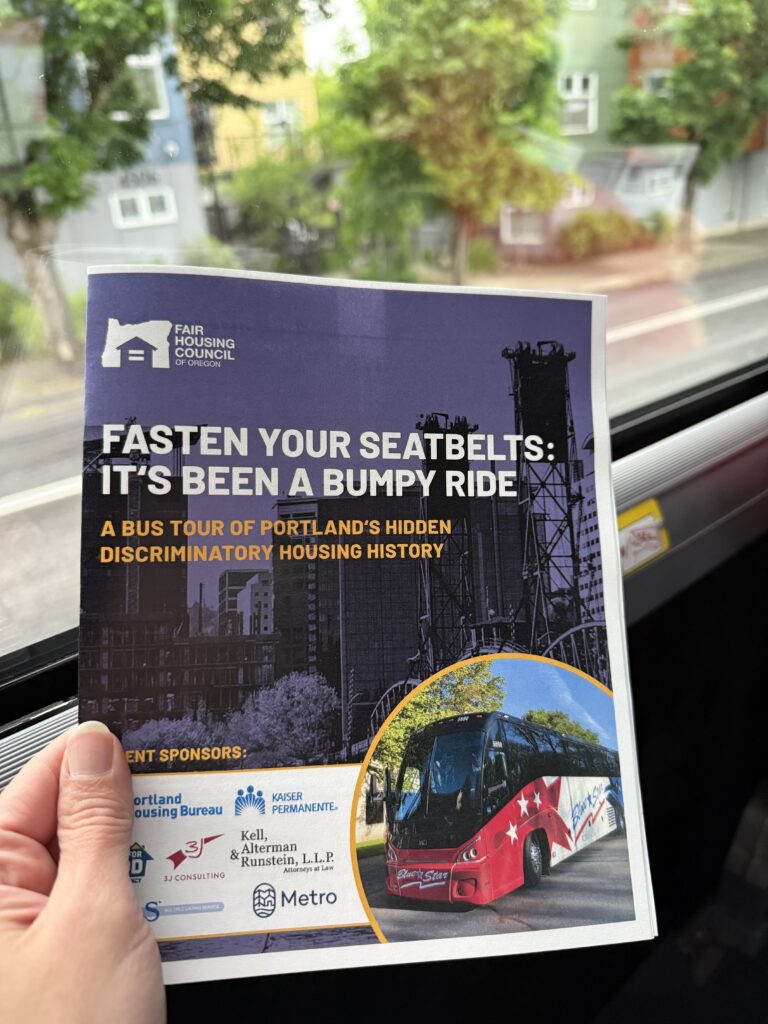
The Fair Housing Council of Oregon (FHCO) offers the tour as part of their educational outreach. It shines a light on policies of exclusion entrenched in the state’s formation, from racially restrictive covenants to the destruction of Black neighborhoods under the guise of urban renewal. These practices were legal at the time and intentionally pushed people of color out of opportunity and homeownership.
“At Habitat, housing justice and racial equity are near and dear to our hearts and the work we do,” said Liv Parks, Director of Diversity, Equity, and Inclusion. “These are values we uphold through our mission, values, and actions, and we have been honored to partner with FHCO to take a deeper dive into the living past around us in communities we support and love.
“It is our duty to be aware of our history and our present in order to intentionally create a better future for all, particularly through equitable homeownership.”
Exploring Oregon’s housing history
Our first stop was just three miles from the Habitat office on Killingsworth Street. A bronze sculpture of Martin Luther King Jr. stands outside the Oregon Convention Center. The Fair Housing Act was passed one week after King’s assassination in 1968.
The FHCO bus tour started as a way to commemorate the 40th anniversary of the Fair Housing Act in 2008. We were privileged to hear from one of the original presenters, Ed Washington. He shared memories of growing up in Vanport, a once-diverse wartime housing development.
Ed described a city “designed to take care of people,” with 24-hour daycare and cafeterias that fed unaccompanied children while their parents worked in the shipyard. When a flood wiped out Vanport, Ed recalled hearing that they would be able to eventually go home and just “sweep out the mud.”
They never went back.
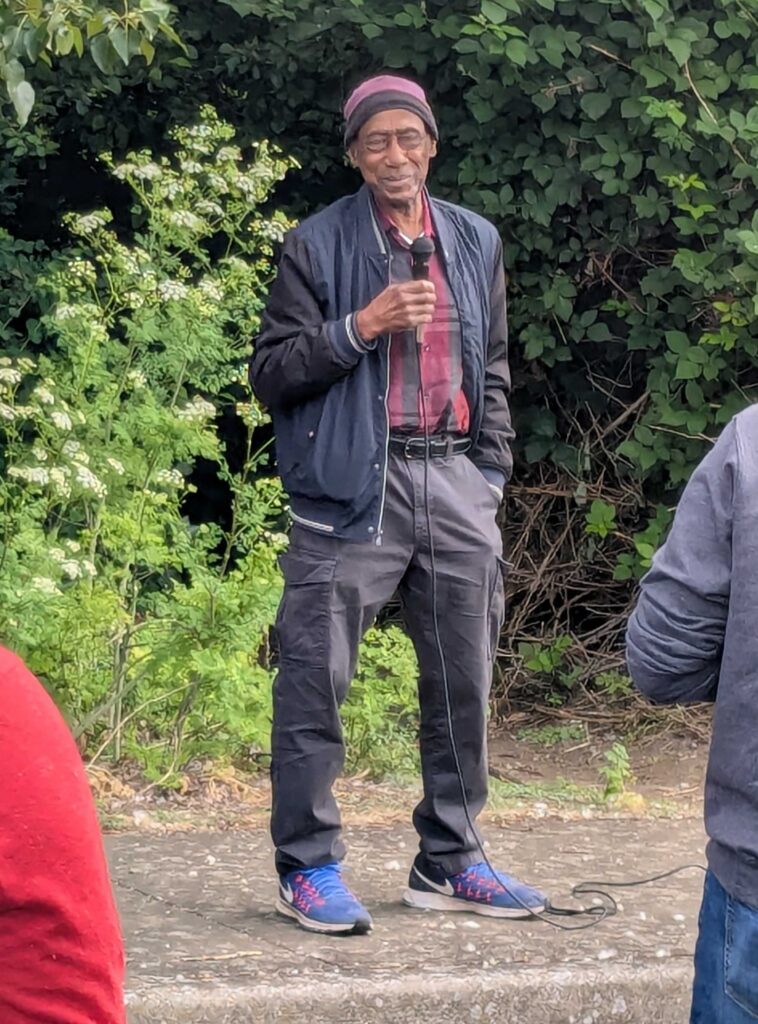
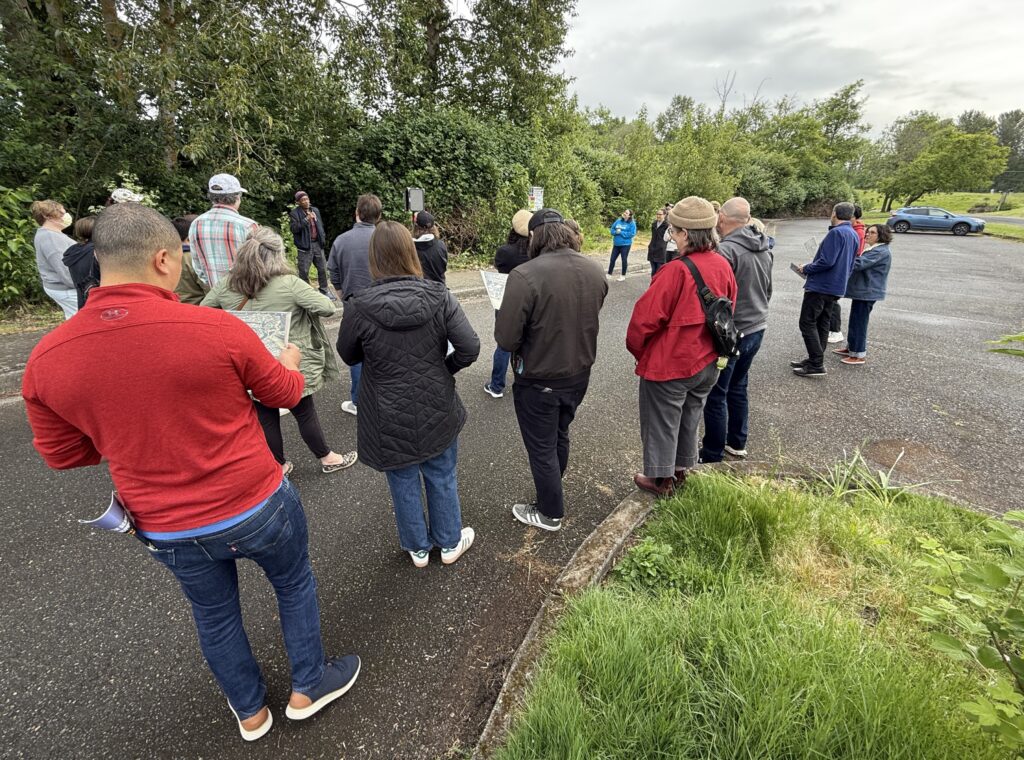
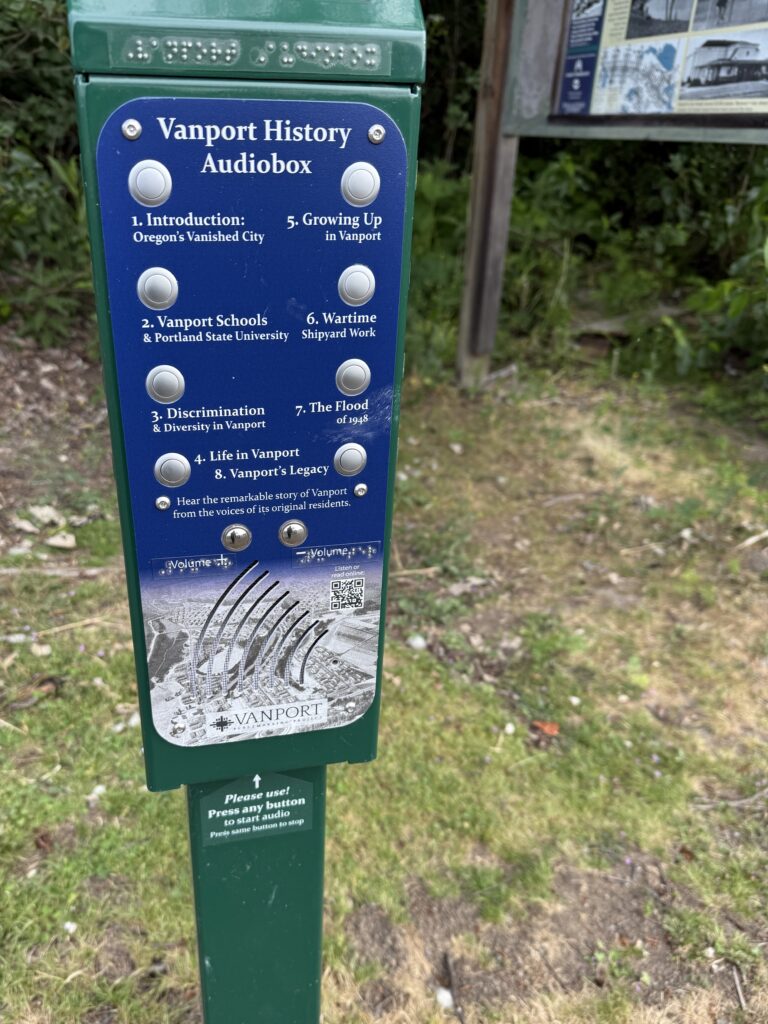
The Heron Lakes Golf Club now sits on the site of the former city of Vanport. A large sign and an “audiobox” stand on the edge of the course. Adding to the surreal juxtaposition, Ed Washington is one of the narrators — and the box was playing his voice as he began to speak in person.
From there, we traveled to the Portland Expo Center. Our next presenter, Marleen Wallingford, warned that her story had none of Ed’s joyful childhood anecdotes. Her parents had been among the thousands of Japanese Americans incarcerated under Executive Order 9066.
The Portland Assembly Center, as it was called, had previously been used for livestock shows. Surrounded by barbed wire, it still smelled like the stockyard and had watch towers on all corners. Marleen shared a photo of her father, who was a teenager when he was sent to Portland’s “concentration camp.”
A placard near the restrooms acknowledges the dark history of 3,676 Japanese Americans detained at this location. An estimated 120,000 were incarcerated across the United States for over three years. For many, the forced removal from their homes resulted in a loss of their property.
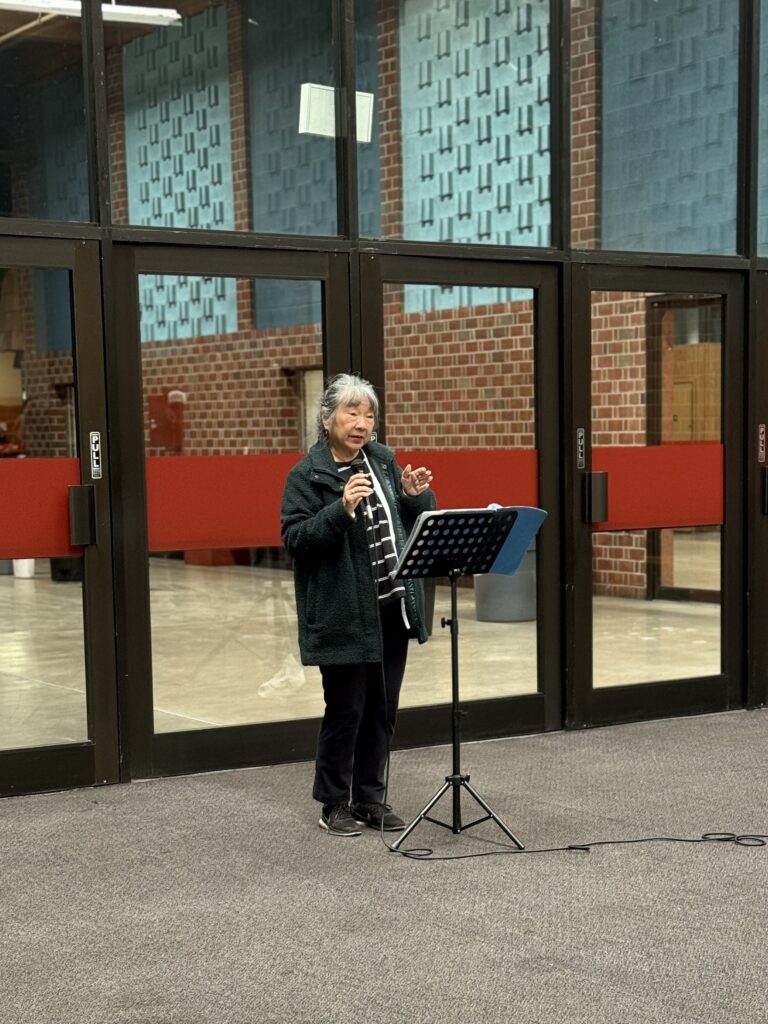
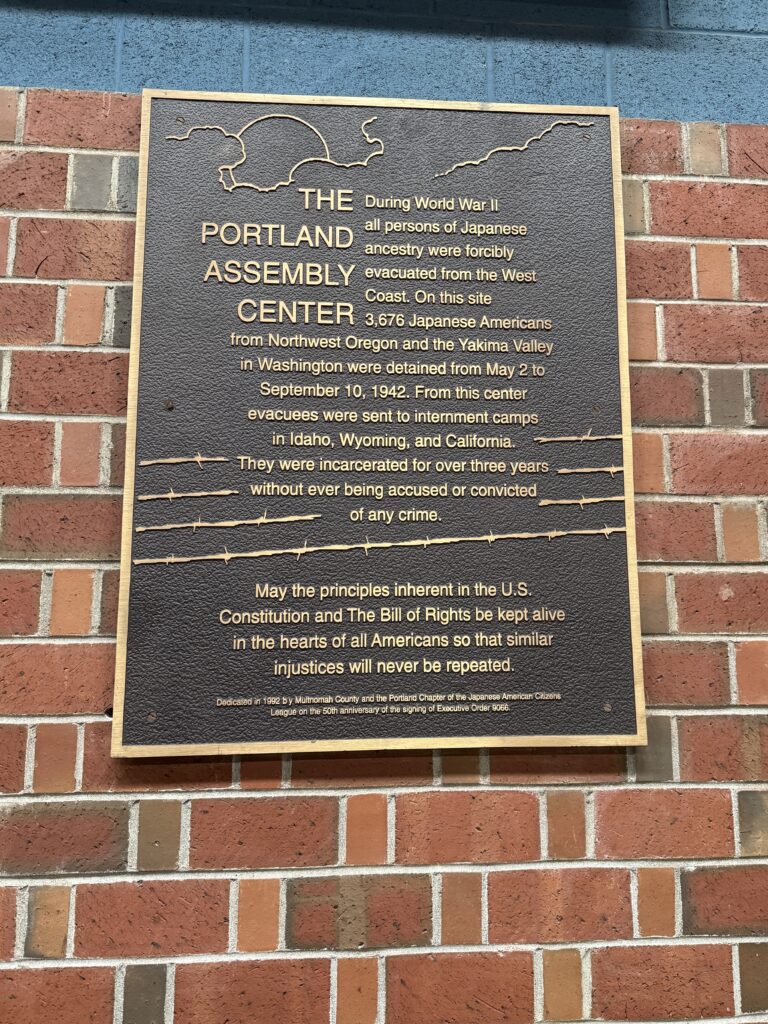
Stories that stay with us
Ed and Marleen’s powerful testimony made an impression on everyone listening. “It is one thing to read about Portland’s complicated past; it is incredibly impactful and inspiring hearing directly from people who have experienced it,” reflected one Habitat staff member. “The bus tour was a great reminder of the impact and social importance of our work at Habitat. The construction department can often be very busy doing the work of building houses. I felt re-grounded to the mission after the tour was over.”
The bus took us to a number of other notable landmarks. Our guide from FHCO highlighted recurring themes and noted that the current wave of anti-immigrant sentiment follows a historic pattern.
These lessons underscore why we do what we do at Habitat for Humanity, and why equity is listed at the top of Our Values.
“We commit to undoing systemic inequities and to being an anti-racist organization.”
At Habitat, we believe everyone deserves an affordable place to call home, and we continue to work to create a region where everyone has the opportunity to build a better life.
To learn more about the Fair Housing Council of Oregon and their bus tour of Portland’s hidden discriminatory housing history, visit fhco.org
